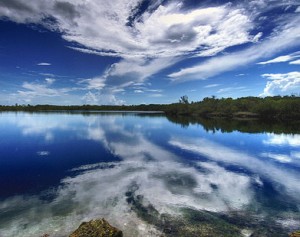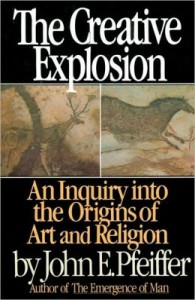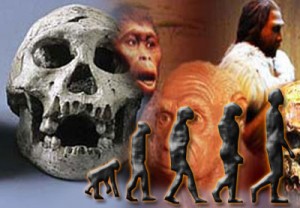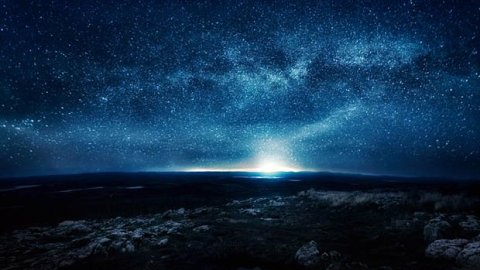Meditations – On an early spring afternoon along the stream that runs along the periphery of the town, a huge, smooth shelf of a cloud juts out from halfway up a mass of cumulus over the foothills. It grows out of the billowing white clouds in a grayish wall hundreds of meters high that adds depth and dimensionality to what is already a fantastically varied sky.
 As the mind falls silent, the place begins to throb with beauty, newness and mystery. Suddenly nothing seems familiar in the familiar spot. As the movement into the unknown deepens, one feels a tension between letting go and hanging on.
As the mind falls silent, the place begins to throb with beauty, newness and mystery. Suddenly nothing seems familiar in the familiar spot. As the movement into the unknown deepens, one feels a tension between letting go and hanging on.
Acknowledging and watching the subtle fear of losing oneself completely, there is no conflict, and the ‘I’ surrenders. There’s a feeling that one could physically die in such a state without complaint or regret.
Everywhere one turns the earth and sky are imbued with the light of creation. Below the ‘shelf’ a great cavern opens up, looking like a portal to another dimension. The large hole is formed from a tender arc curling upwards from the cumulus in the foreground on one side, matched in another plane by a darker curl in the background. The ephemeral effect is surreal as well as fitting.
The psychological needs of humans aren’t compatible with the urgent necessities of human beings and the gods. But what is the work of human beings and the gods?
As I understand it, ‘the work’ is the transmutation of man, always and perennially beginning within oneself. Consciousness is not the ‘through the glass darkly’ thing we usually know, but an awareness beyond the symbols and screens of thought, which the brain of Homo sapiens has the potential to attain. That’s clear in so-called higher states of consciousness, which are actually simply levels of awareness that can and urgently need to become normal.
Consciousness as we know it (I call it content-consciousness) is a matter of conditioning, culture, memory, tradition, and the past. We’ve reached the end of it, both because of the saturation of self-made darkness, as well as the existential challenge posed by the digital analog of thought, the computer.
Awakened consciousness is liberated, temporarily or irrevocably, from psychological memory, images, experiences, racial/familial identity, and conditioning of all kinds. Can the conscious breakthrough that ushers in veritably a new species (conscious for the first time in the history of man or any other species on earth) occur now?
I’m reading John E. Pfeiffer’s “Creative Explosion: An Inquiry Into the Origins of Art and Religion.” It’s an extraordinary book, marking and exploring the transition from proto-humans, who did not possess art and religion, to modern humans, for whom art and religion have been the basis of culture for at least the last 40,000 years.
book, marking and exploring the transition from proto-humans, who did not possess art and religion, to modern humans, for whom art and religion have been the basis of culture for at least the last 40,000 years.
The creative explosion followed “vast stretches of time [millions of years] from the first hominids to early Homo sapiens…stretches of sheer monotony, almost empty eons of gradual change, when nothing much seems to have happened…and marks the emergence of a new species—and more significant than that, a brand-new kind of evolution.”
Speaking of the great cave art in France and Spain dating back 30,000 years and more, Pfeiffer says, “there is nothing faint or uncertain about the subsequent course of events, the phenomenon of the Upper Paleolithic.”
Whatever the precise date and location of its origin, this was the last creative explosion in our species as a whole, demarcating the end of proto-humans and the beginning of modern humans. My 30-year inquiry into the transmutation of our species has come down to this question: Can we ignite a different kind of creative explosion, and awaken a new human being?
There is tremendous urgency, given the man-made ecological and spiritual catastrophe in progress. Of course the breakthrough might not occur for another 500 years, which is nothing in the scheme of things and span of evolutionary time.
When did the work begin? It began with the first human being that transcended conditioning and culture and cared about humanity as a whole.
That may have happened shortly after the creative explosion following the ‘bottleneck’ in southern or eastern Africa, when the supervolcano Toba erupted in Indonesia and reduced the proto-human population to a few thousand pre-modern people. That crisis, which nearly wiped Homo sapiens off the face of the earth before our species even emerged, generated a cognitive and cultural leap, from which all subsequent humans and their cultures arose.
 Now there are 7 billion people, but there’s a bottleneck of even more pronounced proportions, since humanity faces a global crisis of consciousness with perhaps only a few thousand fully developed human beings on the planet. And I don’t consider myself one of them.
Now there are 7 billion people, but there’s a bottleneck of even more pronounced proportions, since humanity faces a global crisis of consciousness with perhaps only a few thousand fully developed human beings on the planet. And I don’t consider myself one of them.
The last shrinking bastions of isolated indigenous people represent the former richness, in all its flawed diversity, of anthropological man. As a whole, humans are devolving into sub-humans, though they may have high technology and Harvard MBA’s.
Humans don’t need to look for other humans; they are everywhere. Human beings feel the need to find other human beings, but that motivation may come from vestigial human needs and fears in the human being. The gods are content to stand alone, but want to help humans and human beings grow, out of love.
Does the human have a place at all, or must humans grow into human beings, and human beings grow into gods? (There are many goddesses these days, but very few if any living gods. And I’m not referring to gender.)
Underground, is the work significantly moving, and can it manifest in the near future? Is that the same thing as the work going from the hands of the gods to the hands of human beings, where it belongs?
That seems right, but it means that some unknown and unknowable number of humans have to grow into human beings, and begin truly thinking together. Until that time, the work must remain in the hands of the gods.
Metaphorically speaking, it’s the job of emerging human beings to wrestle the work from the jealous hands of the gods.
Martin LeFevre

